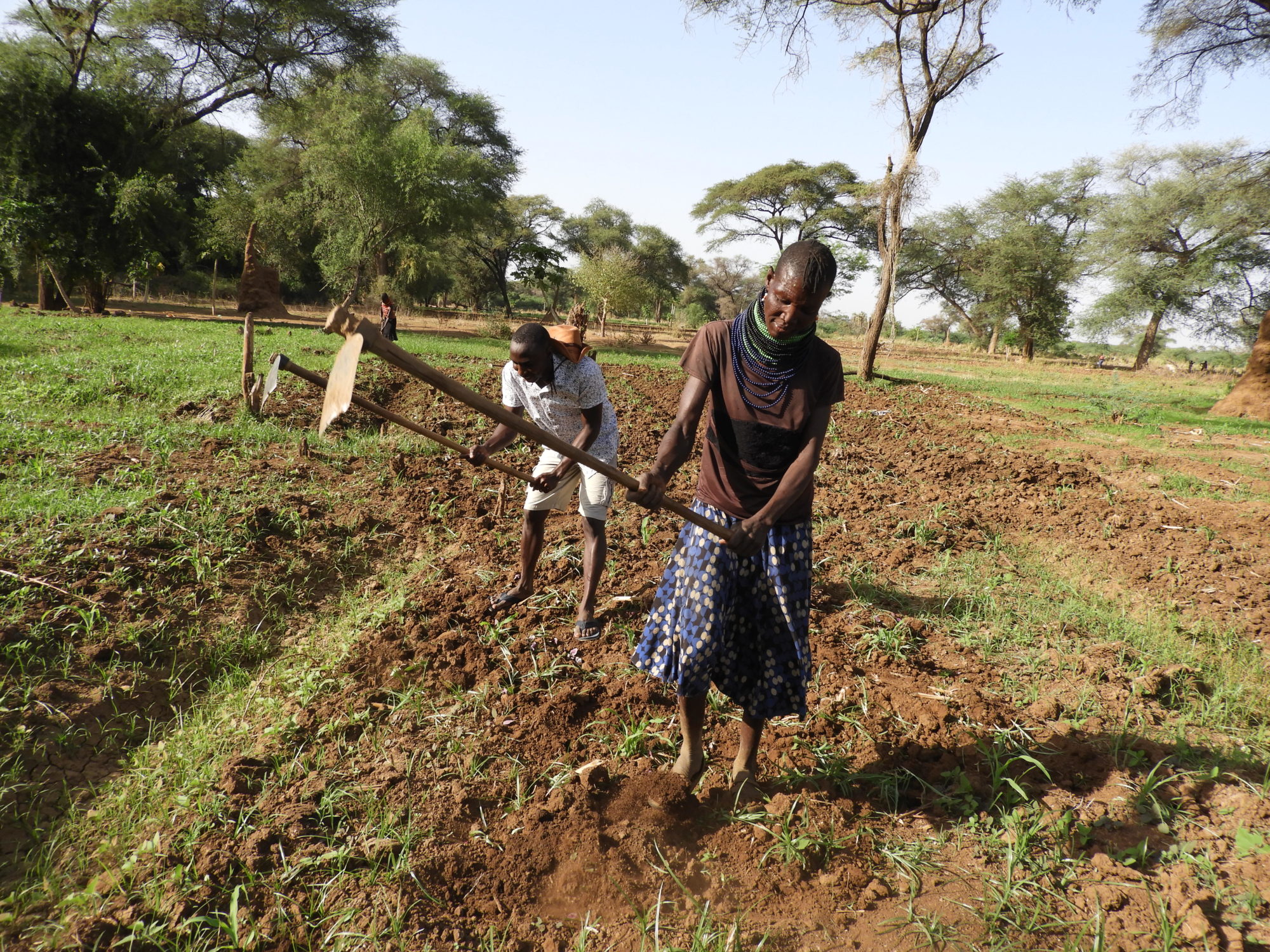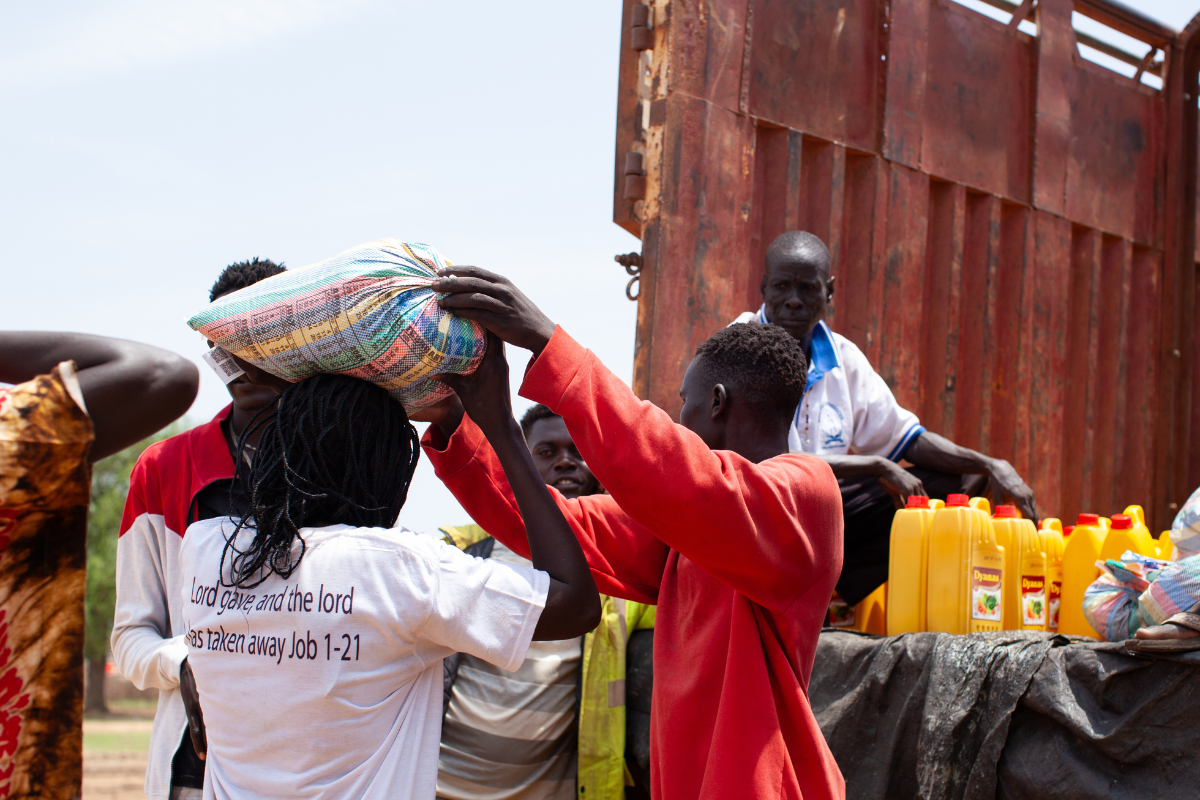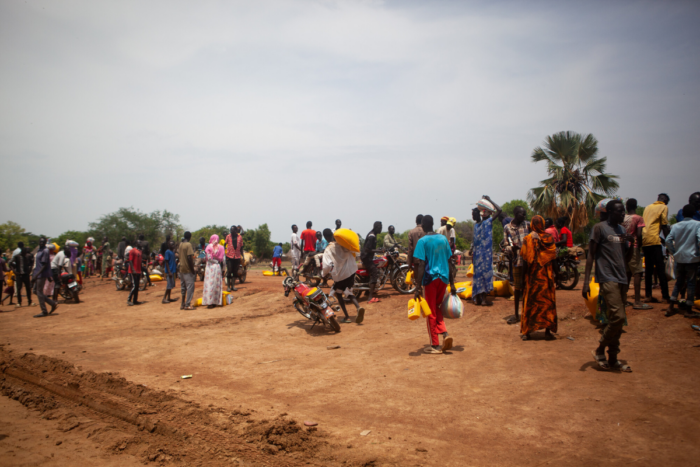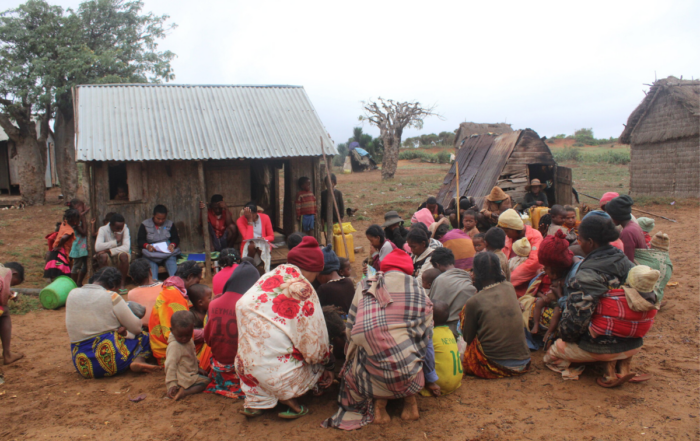The Farming Warriors of Turkana

In Turkana, Kenya, there has been a long history of young men raiding their neighbours’ cattle. The raiders, called warriors, have been known to return from raids with thousands of cattle. They use the cattle to pay dowries for wives and to slaughter during ceremonies. Raids not only ended in the loss of cattle, but often in the loss of human lives. And raided communities have often sought revenge and to recapture their stolen cattle–furthering the violence.
For over a century the culture of the Turkana and neighbouring communities has revolved around livestock keeping and cattle raiding. But in the last decade, through collaborative efforts by the Kenyan government and humanitarian organizations, this tradition of theft and violence has been less prevalent as these two entities implement initiatives geared to achieving peace and normalcy, and restoring dignity to human life in the region. These initiatives have included setting up alternative livelihoods projects, conducting disarmament exercises in all conflicting communities, and more. World Renew has been part of the effort.
Since 2013, World Renew has been implementing a number of projects in the area–particularly in Katilu Ward. These projects have included livelihood and peacekeeping programs, and drought responses. Through Village Savings and Loan Associations (VSLAs) people with similar livelihood skills and interests are brought together to learn new skills and to save for the future. In the Katilu Ward, the Nachacha Young Farmers Village Savings and Loans (VSL) group has over 50 reformed warriors. Established over seven years ago, the group has had opportunities to learn new farming skills that have helped empower them to earn a living farming, instead of cattle raiding. The members farm on over 50 acres of cultivated land–on a former cattle raiding battle ground. Through World Renew, they have been trained and supported to set up farming plots, with each farmer owning an average of one acre.
These farming warriors have grown a variety of grains and vegetables to sell at a nearby market, including: maize, millet, kales, spinach, green gram, cow peas, and more. From the income they have earned from farming, many of them have been able to help their children achieve their academic dreams; over ten of the members have children in high school, while three have children at university.
Unfortunately, in the last year the region has struggled with the effects of two consecutive failed rainy seasons. With funding from the Canadian Foodgrains Bank, World Renew has provided 1,200 households in Katilu Ward–including the members of the Nachacha Young Farmer group–with a monthly food kit containing 50 kilograms of maize flour, 10 kgs beans, 3 litres of cooking oil, and 0.5 kgs salt for seven months up to May 2022. To continue to address the emergency food needs of families, the drought response was extended for an additional three months to September 2022.
Benson Nachodo, the Nachacha VSL group chairperson says, “We are not going back to fighting with our neighbours! We have decided to use this land to make our living. We have manpower, and all we need is skills and someone to show us the way out of poverty. We are glad to work with World Renew who have shown us the way and walked with us in every step. They have taught us farming skills, VSLA and the need to come together to save, donated various seeds to us, and now because of the drought, are giving us relief food.”
Your gift to World Renew’s Global Food Crisis response helps us to provide emergency food in Kenya and other East African countries where long periods of drought have made it increasingly difficult for families to meet their food needs.
MORE STORIES AND NEWS
South Sudan: Sharing hope with families in a crisis neglected by the media
Sharing hope with families in a crisis neglected by the media July 24, 2024 Integral
Integral Alliance calls for more attention on Neglected Crises
Integral Alliance calls for more attention on Neglected Crises July 9, 2024 Integral Alliance calls
Madagascar: Every photo tells a story
Every photo tells a story February 21, 2024 every photo tells a story February 21,






